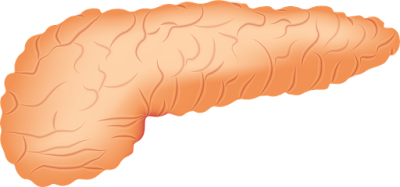Jaundice disease
Hepatitis C (HCV)
Hepatitis C is popularly called "infectious hepatitis" because some patients there is a yellowing of the skin. As HCV enters the body, slowly but steadily destroys the liver.
Note! This often leads include to cirrhosis and liver cancer. To avoid this outcome, you need to avoid a situation in which there is usually an infection, and blood tested periodically to early detect the presence of the virus.
How can I become infected with HCV?
Note! Life under one roof with a sick hepatitis C is not a threat. You can not infect, for example, when you kiss, use the toilet or the same cutlery.
For HCV infection occurs through contact with the blood of a sick person. This may be, for example:
- made injection needle which was infected with the virus;
- surgery the dentist, who used badly sterilized tools;
- making a tattoo, piercing studio, where not respected hygiene;
- manicure, pedicure to a beautician who uses tools not disinfected;
- common use of buttresses hygiene, such as razor blades, scissors, clippers;
- injecting drug use is the same needle;
Note! Most people do not know about the disease, because firstly, hardly anyone shall examine blood in this regard and as a result the infection is most commonly detected by chance (for example, when you need to do research before elective surgery). Second hepatitis C for many years (20-30), may proceed without giving any symptoms, so do not raise our anxiety.
Meanwhile, the virus inhabits the liver and systematically destroys the cells, and besides, is present in blood, so it is a potential source of infection for others.
Note! Just come into contact with the blood to become infected with the virus.
The symptoms of viral hepatitis C
There are few and are not specific and are also felt by the few infected, because hepatitis C is called the "silent killer". The warning signal may include ache in the right upper quadrant, anorexia, nausea, vomiting, diarrhea. Only half of the infected reaches the yellowing of the skin and whites of the eyes.
Note! In 80% of cases of the disease in the chronic phase passes that leads to cirrhosis and, often, the hepatocellular carcinoma (20 patients-fold increased risk of developing this cancer).
The liver becomes hypertrophied fibrous tissue, hard and does not fulfill its physiological function, yet it performs as many as 17 important for our life functions.
How to detect HCV infection?
You just have to examine a blood sample for the presence of anti-HCV antibodies. For prevention is worth doing every 2 years. However, if you feel that you were in a risky situation - after 6 weeks of her too should be explored, because roughly the time the body needs to produce these antibodies.
Treatment of Hepatitis C
If the suspicion of HCV infection is confirmed, the doctor patient qualifies for treatment. Most are given two drugs - interferon and ribavirin. Therapy lasts for almost a year, and about half of the cases is effective.
Recently, a third is used antiviral drug that is effective to inhibit HCV propagation process. The combination of these three formulations give permanent cure in 80% of patients.
Note! Unfortunately, not all patients are suitable for this treatment. The decision about who can use it individually made by a physician specialist.


Comments
Post a Comment